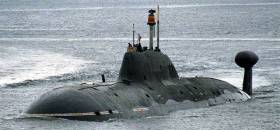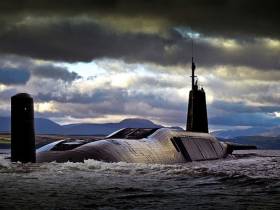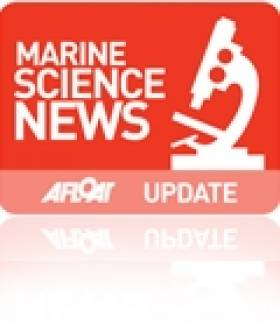Displaying items by tag: Submarines
Reports Say Russian Submarines Tracked In Irish Sea
#RussianSubs - Russian submarines have been tracked through the Irish Sea by the British military in recent days, according to Mail Online.
Two nuclear-powered Akula-class submarines were reportedly monitored by Royal Navy radar as they travelled to meet with a third sub tracked by Norway towards the English channel.
It’s understood all three were tracked by a Royal Navy sub before they went deep.
The situation comes after Russia unveiled a new stealth submersible craft amid escalating tensions over Russian President Vladimir Putin’s interventions in Syria.
Mail Onine has much more on the story HERE.
NI Waters Not Deep Enough For Trident Subs Says MLA
#Trident - Trident won't be coming to Northern Ireland - as there are no waters deep enough to host the nuclear deterrent submarines, according to one MLA.
As the Belfast Telegraph reports, Ulster Unionist MLA Steve Aiken says that from his own experience, the region has no suitable deepwater ports or inlets necessary for the 150m-long Vanguard-class submarines in the Trident programme, which are currently stationed off western Scotland.
"It's not deep enough, we can't do it," he said. "I tried to bring my submarine, HMS Sovereign, to Belfast towards the end of its time.
"Because you need deep water at all states of the tide, even though entrance to Belfast Lough is dredged to 10 metres, it's not deep enough.
"You can't bring it into Larne because there is a rock sill coming into Larne Lough which you would have to blast out; same for Carlingford Lough, and Lough Foyle is too shallow."
The Belfast Telegraph has more on the story HERE.
Military Listens Close To Marine Scientists' Ocean Sound Data
#Hydrophones - Could the world's network of hydrophones used by marine scientists to track ocean sounds such as whale songs also be used to spy on the movements of military submarines?
That's a real concern among North America's top brass, as Matthew Braga writes in The Atlantic, for the instruments used by scientists to collect important data on marine wildlife send their information openly across the internet – and may be transmitting more than they think.
"There's a long tradition of the ocean being the exclusive domain of the militaries and the fishing community, and we're more or less interlopers in this world," says Canadian microbiologist Kim Juniper, who explains how some of the data collected by Ocean Networks Canada is diverted – often on a whim – to a secure military computer to parse for potentially classified information.
It's an inconvenience for scientists in the field, to say the least. But since their hydrophones hear everything that passes by - both natural and man-made - the potential security threat is very real.
The Atlantic has much more on the story HERE.































































